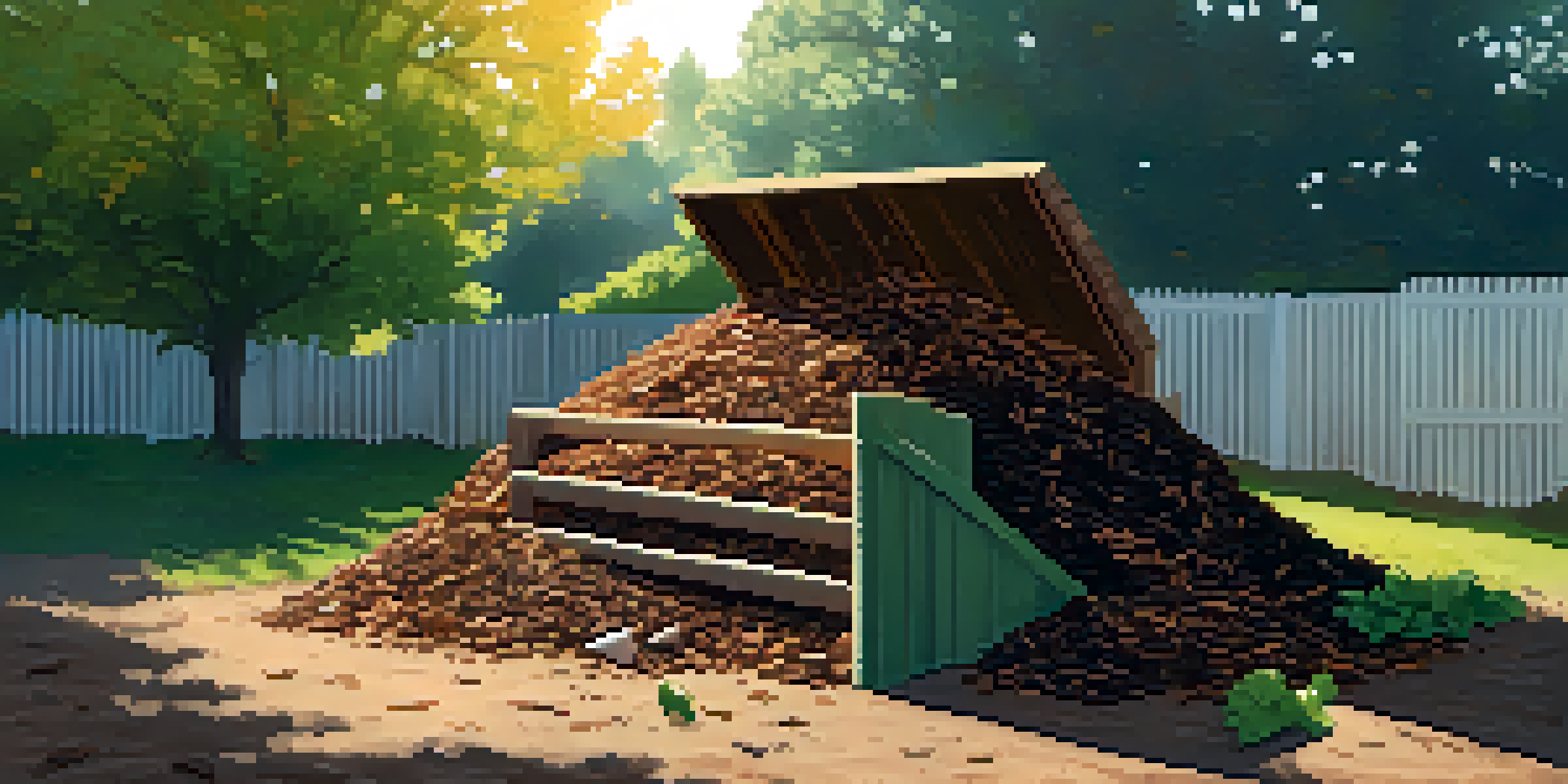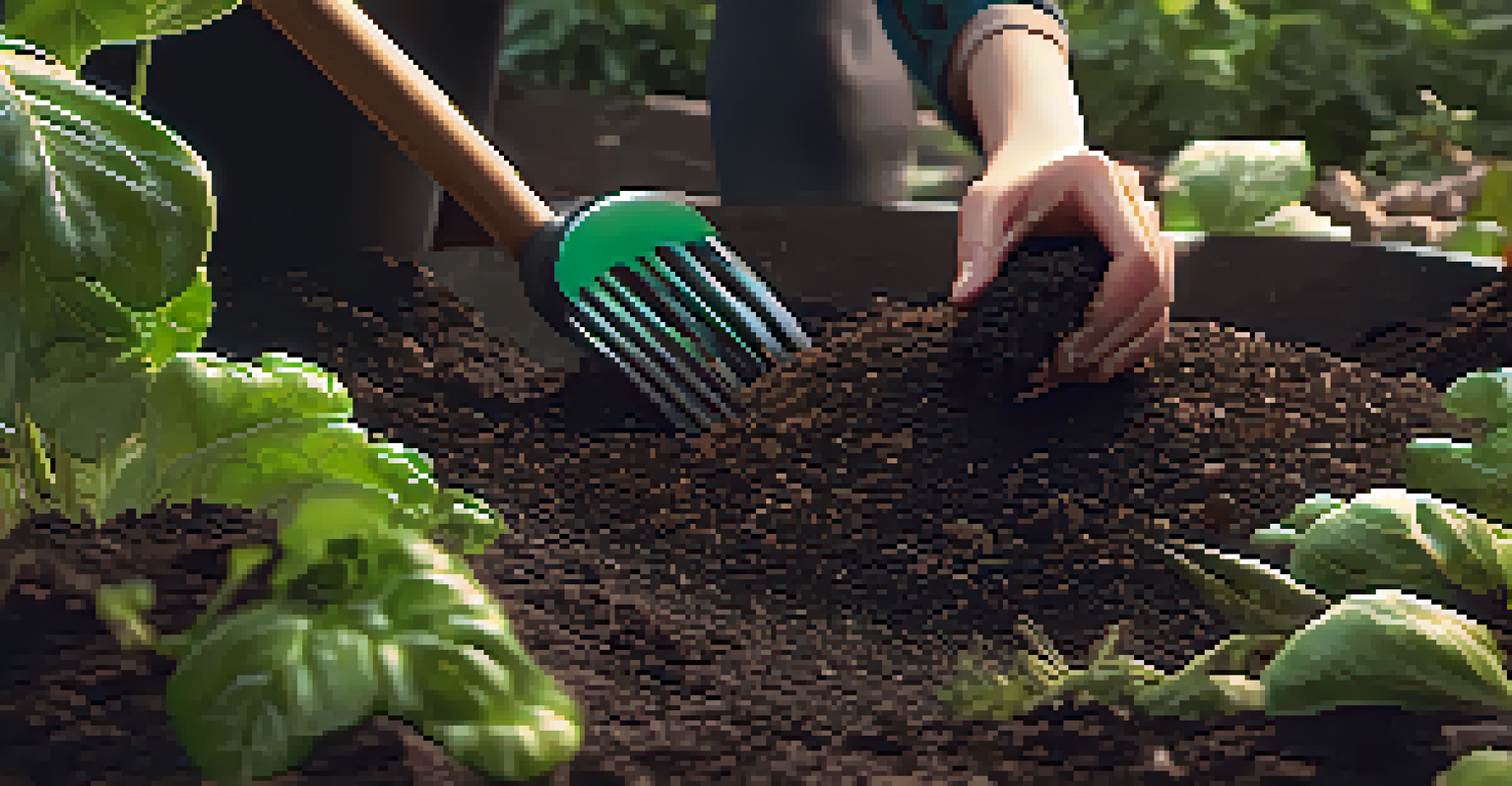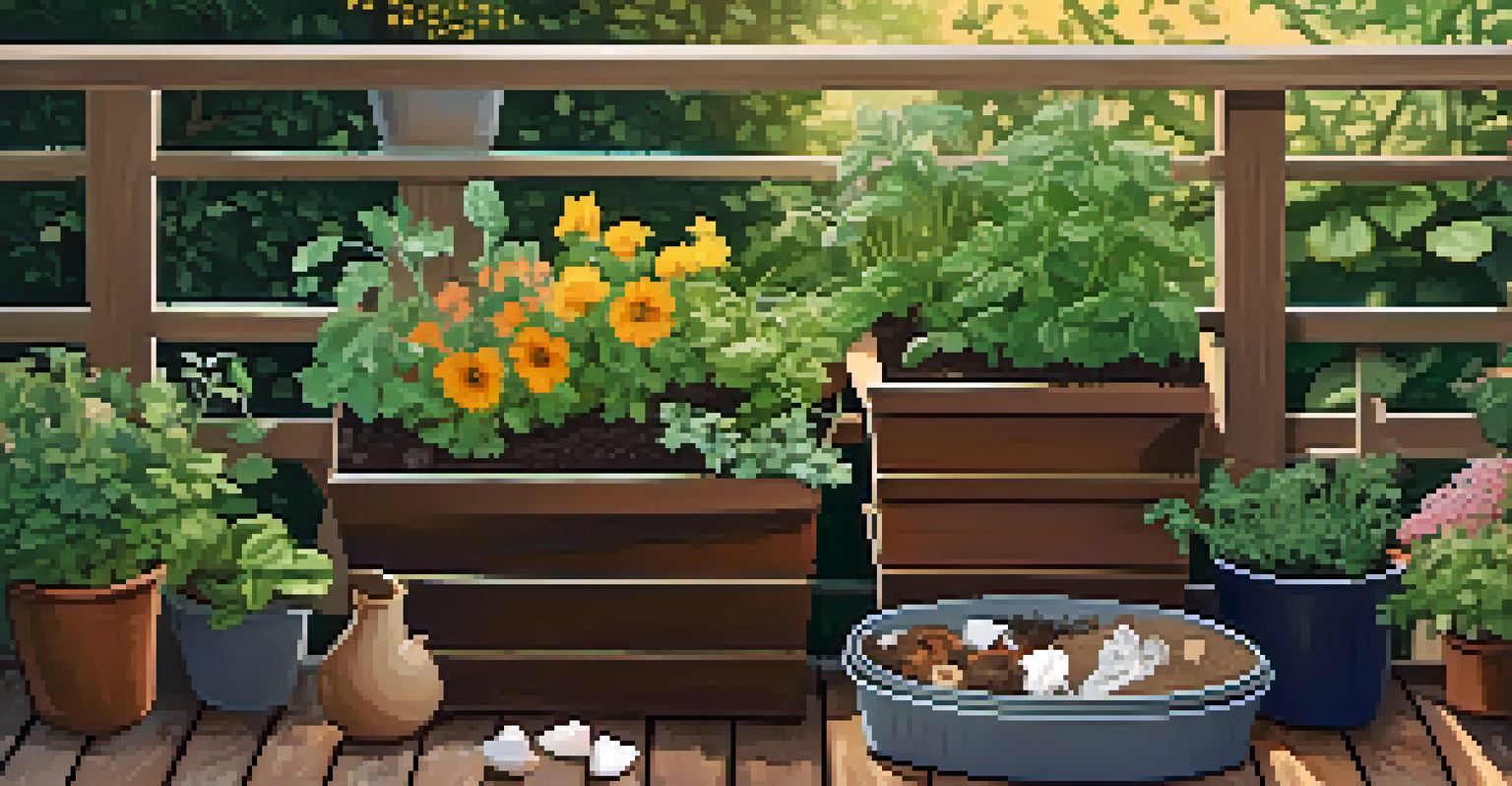Composting 101: Turning Waste into Garden Gold

What is Composting and Why Should You Care?
Composting is the process of breaking down organic waste into nutrient-rich soil. This not only helps reduce the amount of waste sent to landfills but also enriches your garden. Think of it as nature’s recycling system for organic materials, transforming kitchen scraps and yard waste into 'black gold' for your plants.
The greatest threat to our planet is the belief that someone else will save it.
By composting, you contribute to a healthier environment. You’re lowering greenhouse gas emissions and reducing the need for chemical fertilizers, which can be harmful to ecosystems. Plus, it’s a simple way to give back to the earth while enhancing your gardening efforts.
Whether you have a sprawling backyard or a small balcony, composting can fit into your lifestyle. It's a practical and rewarding way to manage waste and improve your gardening results. So, let’s dive into the basics of how to get started!
The Science Behind Composting: How It Works
At its core, composting relies on the natural process of decomposition, where microorganisms break down organic matter. This process involves bacteria, fungi, and other microorganisms, which thrive on the carbon and nitrogen found in your compost materials. Think of them as tiny workers that convert your waste into something wonderful.

To create the perfect compost, you need a balance of 'greens' (nitrogen-rich materials) and 'browns' (carbon-rich materials). Greens include items like fruit scraps and grass clippings, while browns consist of dried leaves and cardboard. The right mix ensures that your compost heats up and breaks down efficiently, speeding up the process.
Composting Benefits the Environment
Composting reduces waste in landfills and enriches soil, promoting a healthier ecosystem.
As decomposition occurs, heat is generated, which helps eliminate pathogens and weed seeds. The end result is a rich, dark soil amendment that can be added to your garden or potted plants. Understanding these basics will set you up for success in your composting journey.
Essential Materials for Successful Composting
The materials you choose for your compost pile play a crucial role in its success. Common compost ingredients include vegetable scraps, coffee grounds, eggshells, grass clippings, and dry leaves. Always remember to avoid meat, dairy, and oily foods, as they can attract pests and cause odors.
Composting is a natural process that recycles organic material, such as leaves and food scraps, into a valuable fertilizer for plants.
You can also use yard waste, such as branches, twigs, and weeds (as long as they haven’t gone to seed). The key is to mix in a variety of materials to create a balanced composition that promotes effective decomposition. This diversity mimics the natural ecosystem and accelerates the composting process.
When adding materials, chop them into smaller pieces to increase the surface area for microbes to work on. This simple step can significantly speed up the breakdown of your compost pile, turning waste into garden gold faster than you might think!
How to Set Up Your Composting System
Setting up your composting system can be as simple or elaborate as you want. You can start with a small bin or even a compost pile in your backyard. For those with limited space, consider using a worm bin or a countertop compost container to keep things tidy.
If you’re going for a bin, ensure it has good airflow and drainage. This can be achieved by using a tumbler, a wooden pallet setup, or a store-bought compost bin. The goal is to create an environment where air can circulate, allowing microorganisms to thrive.
Balance Greens and Browns for Success
A successful compost requires a proper mix of nitrogen-rich greens and carbon-rich browns to accelerate decomposition.
Don’t forget to locate your compost system near your kitchen for easy access. This will encourage you to add scraps regularly, making your composting efforts more successful. With the right setup, you’ll be well on your way to creating nutrient-rich compost!
Maintaining Your Compost Pile for Optimal Results
Maintaining your compost pile is essential for achieving the best results. Regularly turning the pile helps aerate it and speeds up the decomposition process. You can use a pitchfork or shovel to mix the materials, ensuring that air can reach all parts of the pile.
Monitor the moisture level of your compost as well; it should be damp, like a wrung-out sponge. Too much moisture can lead to a smelly pile, while too little can slow down the decomposition process. If your compost looks dry, simply add some water or more greens to balance it out.
Lastly, be patient! Composting takes time, typically several months to a year, depending on conditions. Trust the process, and soon you’ll be rewarded with rich, dark compost that can enhance your garden’s health and productivity.
Harvesting and Using Your Finished Compost
Once your compost has turned into a crumbly, dark substance, it’s time to harvest! You’ll know it’s ready when it smells earthy and no longer resembles the original materials. This is your garden gold, packed with nutrients that can support healthy plant growth.
To use your compost, mix it into the top layer of soil in your garden beds or potting mix for container plants. You can also use it as a top dressing for lawns or as a mulch around plants to conserve moisture and suppress weeds. The possibilities are endless!
Avoid Common Composting Mistakes
To ensure effective composting, steer clear of adding meat and dairy, maintain aeration, and watch the balance of materials.
Remember, composting is an ongoing process. As you use your finished compost, continue to add new materials to your pile. This cycle of recycling waste into nutrient-rich soil not only nourishes your plants but also fosters a sustainable gardening practice.
Common Composting Mistakes to Avoid
Even seasoned composters can make mistakes, so it’s essential to be aware of common pitfalls. One mistake is not maintaining the right balance of greens and browns. Too many greens can lead to a smelly pile, while too many browns can slow down decomposition. Keep an eye on your mix!
Another mistake is neglecting aeration. A compacted compost pile can become anaerobic, which slows down the decomposition process and can create unpleasant odors. Make it a habit to turn your pile regularly to keep things airy and efficient.

Lastly, some people add inappropriate materials to their compost. Avoid adding meat, dairy, and oily foods, as these can lead to pest problems. Stick to plant-based scraps and yard waste for a successful composting experience!